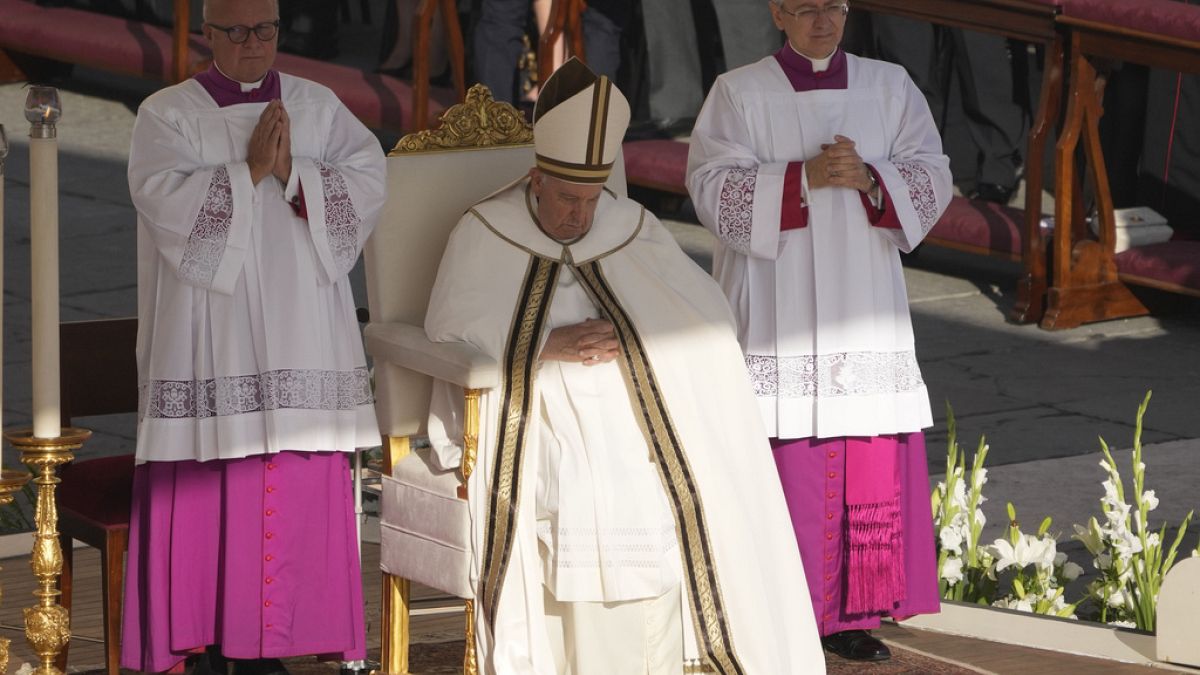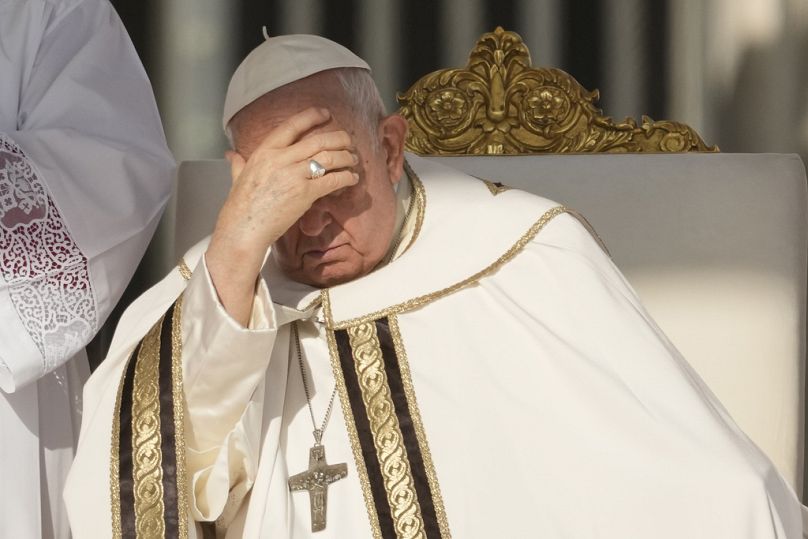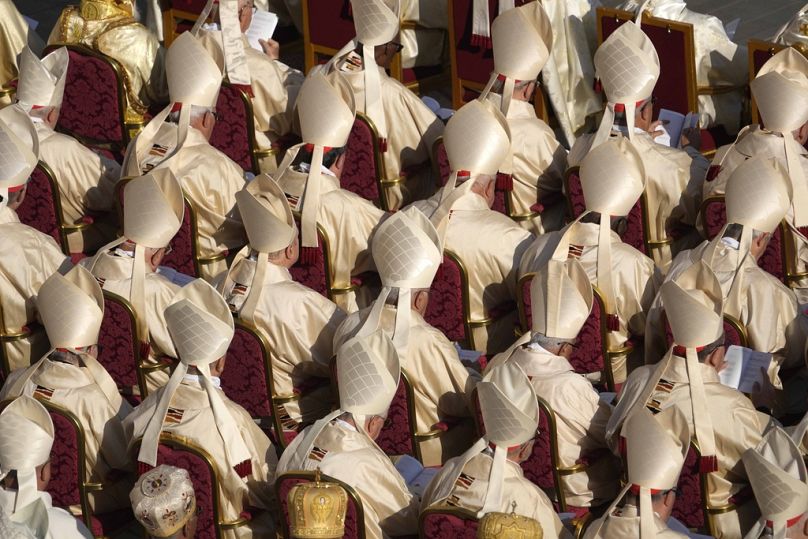Taboo subjects such as the ordination of women and the role of LGBTQ congregants will be discussed
Pope Francis opened a big meeting on the future of the Catholic Church Wednesday by saying it was in need of repair to make it a place of welcome for "everyone, everyone, everyone," not a rigid barricade riven by fears and ideology.
Francis presided over a solemn Mass in St. Peter's Square to formally open the meeting, which progressives are hoping will lead to more women in leadership roles and conservatives are warning could split the church.
Hope, hype and fear
Rarely in recent times has a Vatican gathering generated as much hope, hype and fear as this three-week, closed-door meeting, known as a synod. It won't make any binding decisions and is only the first session of a two-year process. But it nevertheless has drawn an acute battle line in the church's perennial left-right divide and marks a defining moment for Francis and his reform agenda.
In his homily, Francis acknowledged the ideological divisions at play but urged the faithful to put them aside and instead listen to the Holy Spirit. He recalled that his namesake St. Francis of Assisi, whose feast day is celebrated Wednesday, also faced divisions and tensions in his lifetime and responded with prayer, charity, humility and unity when he was told: "Go and rebuild my church."
"Let us do the same!" Francis said. "And if God's holy people with their shepherds from all over the world have expectations, hopes and even some fears about the synod we are beginning, let us continue to remember that it is not a political gathering, but a convocation in the spirit; not a polarised parliament, but a place of grace and communion."
Even before it started, the gathering was historic because Francis decided to let women and laypeople vote alongside bishops in any final document produced. While fewer than a quarter of the 365 voting members are non-bishops, the reform is a radical shift away from a hierarchy-focused Synod of Bishops and evidence of Francis' belief that the church is more about its flock than its shepherds.
A watershed moment
"It's a watershed moment," said JoAnn Lopez, an Indian-born lay minister who helped organise two years of consultations prior to the meeting at parishes where she has worked in Seattle and Toronto.
"This is the first time that women have a very qualitatively different voice at the table, and the opportunity to vote in decision-making is huge," she said.
The potential that this synod process could lead to real change on previously taboo topics has given hope to many women and progressive Catholics and sparked alarm from conservatives who have warned its call for radical inclusion of LGBTQ+ people could lead to schism.
Conservative backlash
They have written books, held conferences and taken to social media claiming that Francis' reforms are sowing confusion, undermining the true nature of the church and all it has taught over two millennia. Among the most vocal are conservatives in the US.
On the eve of the meeting, one of the synod's most outspoken critics, American Cardinal Raymond Burke, delivered a stinging rebuke of Francis' vision of "synodality" as well as his overall reform project for the church.
"It's unfortunately very clear that the invocation of the Holy Spirit by some has the aim of bringing forward an agenda that is more political and human than ecclesial and divine," Burke told a conference entitled "The Synodal Babel."
He blasted even the term "synodal" as having no clearly defined meaning and said its underlying attempt to shift authority away from the hierarchy "risks the very identity of the church."
Exchange of letters
In the audience was Cardinal Robert Sarah, who along with Burke and three other cardinals, had formally challenged Francis to affirm church teaching on homosexuality and women's ordination before the synod.
In an exchange of letters made public Monday, Francis didn't bite and instead said the cardinals shouldn't be afraid of questions that are posed by a changing world. Asked specifically about church blessings for same-sex unions, Francis suggested they could be allowed as long as such benedictions aren't confused with sacramental marriage.
On the agenda are calls to take concrete steps to elevate more women to decision-making roles in the church, including as deacons, and for ordinary Catholic faithful to have more of a say in church governance.
Also under consideration are ways to better welcome of LGBTQ+ Catholics and others who have been marginalised by the church, and for new accountability measures to check how bishops exercise their authority to prevent abuses.


